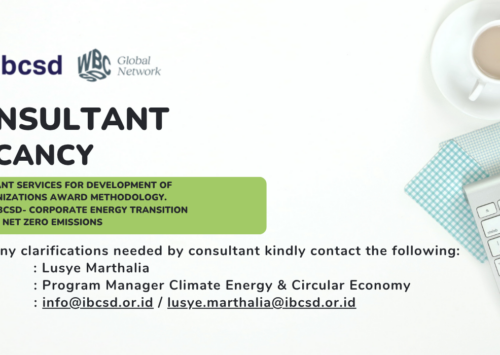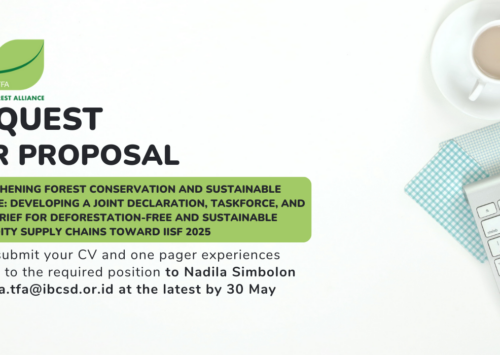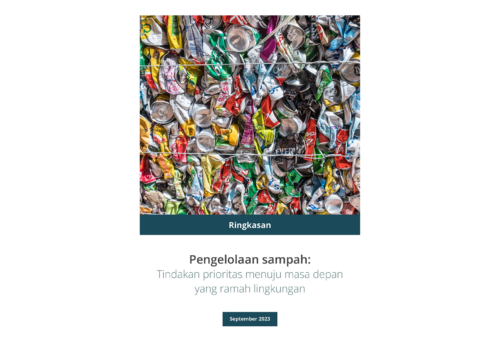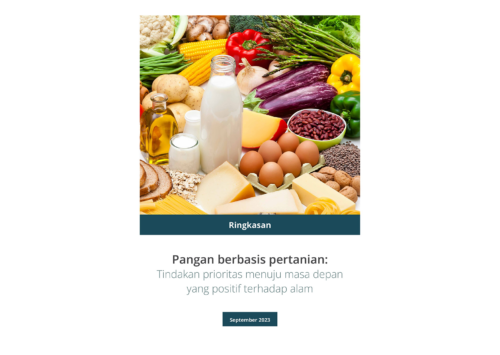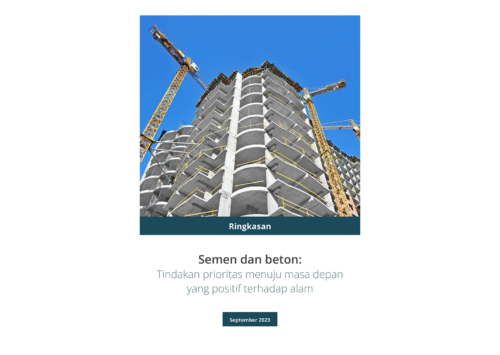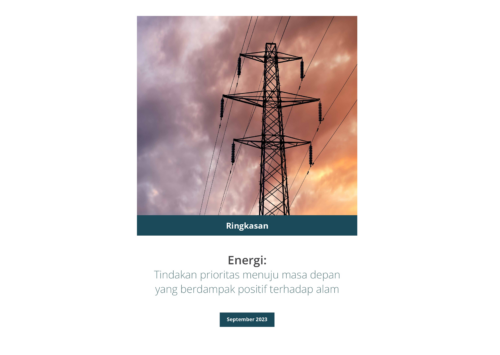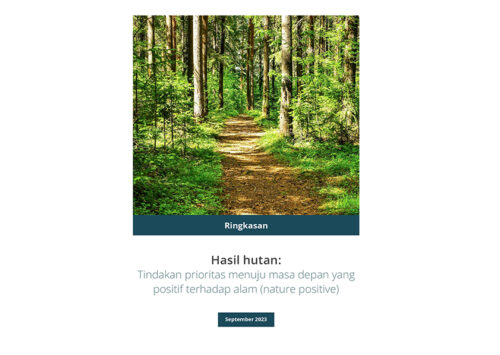The chairman of ASI, who also is the President of IBCSD, Lilik Unggul Raharjo, delivered welcoming remarks and set the context. He said, “It is important to set decarbonization actions as a form of responsibility to the environment. The cement industry has a different challenge in committing to climate neutral initiatives, conducting innovative production to provide sustainable solutions, and implementing a circular economy.”
Distinguished speakers at the event included Mr. Herman Supriadi, Head of the Green Industry Center of the Ministry of Industry; Mr. Octavianus Bramantya, General Manager of KADIN Net Zero Hub; and Mr. Oepoyo Prakoso, Head of Corporate Environment & Sustainability at PT Solusi Bangun Indonesia. Also taking part in the discussion was Mrs. Wiwik Pudjiastuti, Director of the Cement, Ceramics and Non-Metallic Mineral Processing Industry at the Ministry of Industry.
The forum addressed the significant contribution of the cement industry to global emissions. Cement production, responsible for approximately 8% of global CO2 emissions in 2019 according to the International Energy Agency (IEA), stands as one of the largest greenhouse gas (GHG) emitting industries worldwide. In response to this challenge, the Ministry of Industry set a Green Industry Standard for cement in 2018, and the cement industry is expected to reduce emissions by 2.75 Mton CO2 to 3.25 Mton CO2 based on the Enhanced Nationally Determined Contribution (ENDC) document. The Ministry of Industry supports the industry in creating a roadmap for reducing carbon emissions to achieve the set targets.
“Business today invests through Green Industry Standard in order to mitigate climate change while increasing competitiveness as a true industrial character. In addition, it can create green job opportunities and improve environmental quality and biodiversity,” said Herman Supriadi.
“We hope that in the future there will be performance-based cement standards and incentives for the cement industry, so that the industry can develop a roadmap for long-term decarbonization initiatives, align with the decarbonization strategy of the cement association so that it can go hand in hand to reduce CO2,” said Oepoyo Prakoso.
Aligned with global efforts to achieve net-zero emissions by 2050 and Indonesia’s commitment to carbon neutrality by 2060, IBCSD actively promotes leadership and collective action in the business sector towards a low-carbon economy through its platform, the Kadin Net Zero Hub (KADIN NZH). The KADIN NZH aims to assist Indonesian companies in their transition towards net-zero emissions.
“The industry can’t stop growing in terms of finance and production, but we must also realize that the dynamics of this climate are becoming more pronounced. If we don’t keep up with this, we will be the ones left behind,” said Octavianus Bramantya.
The forum aimed to foster knowledge sharing and collaboration among cement industry stakeholders in addressing climate change through emission reduction and achieving net-zero goals. It emphasized the importance of networking and working in synergy with government initiatives to ensure effective planning, implementation, and reporting of emission reduction actions. Additionally, the forum aimed to provide insights into the Indonesian government’s strategy and roadmap for decarbonizing the industrial sector, focusing specifically on the cement industry.
“Immediate implementation of the cement industry roadmap is crucial, followed by a discussion on the timeline. A synergy is a must here,” said Wiwik Pudjiastuti.
The focused discussion event provided a platform for stakeholders to collaborate and accelerate efforts towards a sustainable and decarbonized cement industry while contributing to Indonesia’s net-zero targets. Through knowledge sharing and collaboration, participants aimed to lay the groundwork for a science-based national industry decarbonization roadmap.
For more information on the KADIN Net Zero Hub and future initiatives of IBCSD, please visit www.ibcsd.or.id.
Contact:
Name : Nurina Izazi
